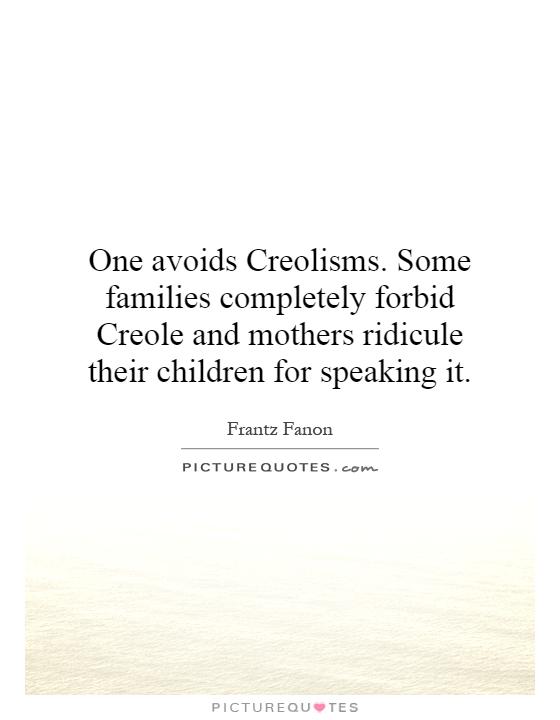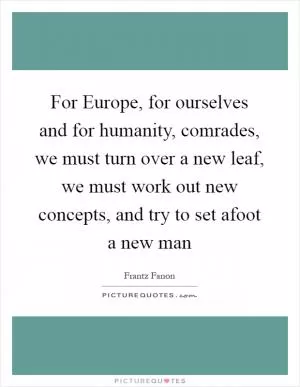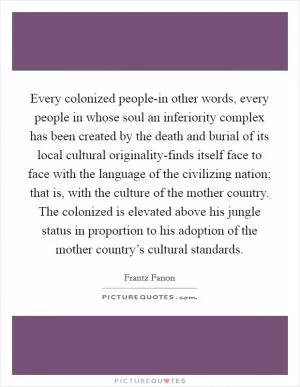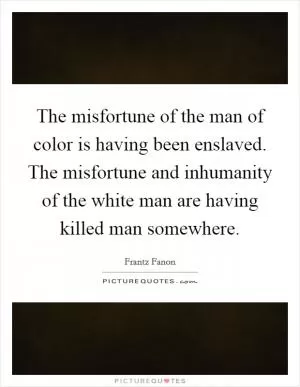One avoids Creolisms. Some families completely forbid Creole and mothers ridicule their children for speaking it

One avoids Creolisms. Some families completely forbid Creole and mothers ridicule their children for speaking it
Frantz Fanon, a prominent thinker and psychiatrist from Martinique, was known for his critical analysis of colonialism and its impact on the psyche of the colonized people. In his seminal work, "Black Skin, White Masks," Fanon delves into the complexities of language and identity in the context of colonialism. The quote "One avoids Creolisms. Some families completely forbid Creole and mothers ridicule their children for speaking it" speaks to the deep-seated self-hatred and internalized racism that can result from the imposition of colonial languages and the denigration of native languages.In many colonized societies, the language of the colonizer is often seen as superior to the native language, leading to the stigmatization and marginalization of indigenous languages. This is particularly true in the case of Creole languages, which are often seen as inferior or "broken" forms of communication. As a result, many families actively discourage the use of Creole in favor of the colonizer's language, perpetuating a cycle of linguistic and cultural erasure.
Fanon's analysis of language in the context of colonialism sheds light on the ways in which the colonized internalize the values and beliefs of the colonizer, leading to a sense of self-alienation and inferiority. By forbidding the use of Creole and ridiculing their children for speaking it, families are essentially perpetuating the colonial mindset of linguistic and cultural superiority.
Furthermore, Fanon's work highlights the importance of reclaiming and celebrating indigenous languages as a form of resistance against colonialism. By embracing Creole and other native languages, colonized peoples can assert their cultural identity and challenge the hegemony of the colonizer's language.












 Friendship Quotes
Friendship Quotes Love Quotes
Love Quotes Life Quotes
Life Quotes Funny Quotes
Funny Quotes Motivational Quotes
Motivational Quotes Inspirational Quotes
Inspirational Quotes